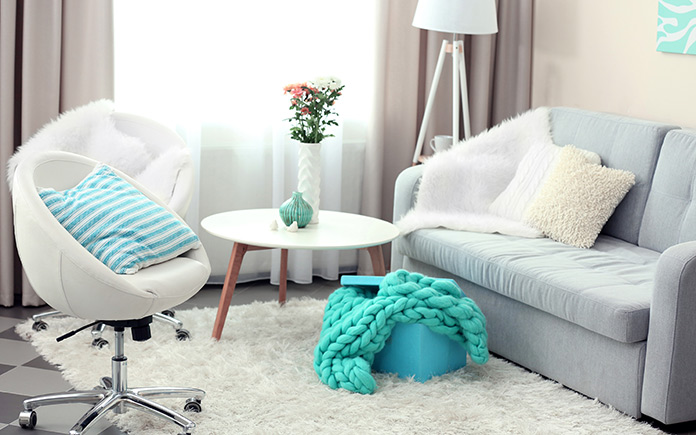
People have had more time and opportunity to evaluate their living spaces, and their needs, during the coronavirus pandemic. And the results may surprise you.
House sizes in the U.S. are on the rise — since the 1970s, new homes’ average size has grown by 62%. According to data from the Census Bureau, in 1973, the average home size was 1,660 square feet. In 2015, that average hit an all-time high at 2,687 square feet.
But most people still want more space, according to a study by Neighbor. The online platform connects people who have extra space and people who need extra storage.
In light of the worldwide outbreak of COVID-19 and the resulting shutdown that has kept people confined to their houses, about a third of Americans said they wished they had more living space.
45% reported wanting more living space in their next home; 41% wanted the same amount. Only 14% said they’d rather downsize.
Perhaps the most interesting finding was that, at the same time, 78% of Americans reported feeling they had too many things in their living spaces. They realized this after spending so much time among their possessions during quarantine.
70% of Americans said they have gotten rid of things during quarantine; 67% didn’t plan to purchase new things after quarantine ends.
This plan may have a major impact on the U.S. economy when you consider that Americans spend over $ 1 trillion on nonessential goods every year.
Could it be that the once-fringe trends of minimalism and decluttering are catching on? And will this movement continue even after COVID-19 is under control and things go back to being as close as they can to “normal”?
Only time will tell.
Keep reading for the full survey results from Neighbor, which explores how COVID-19 and the quarantine might permanently shift the way Americans think about their living spaces, their stuff, and their habits.
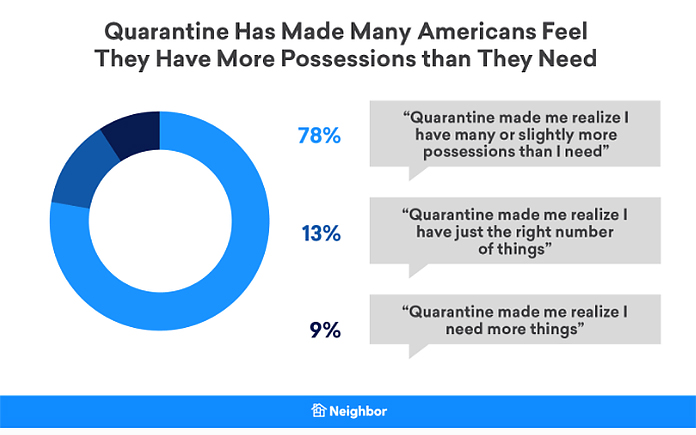
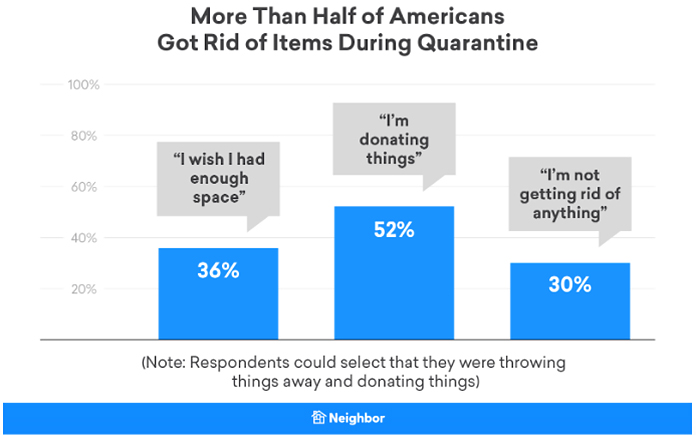
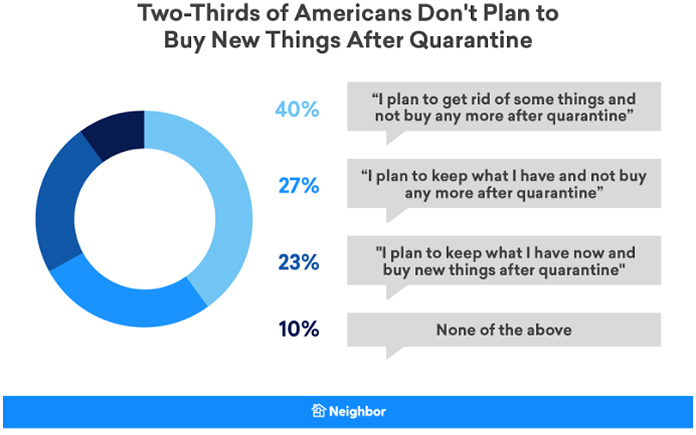
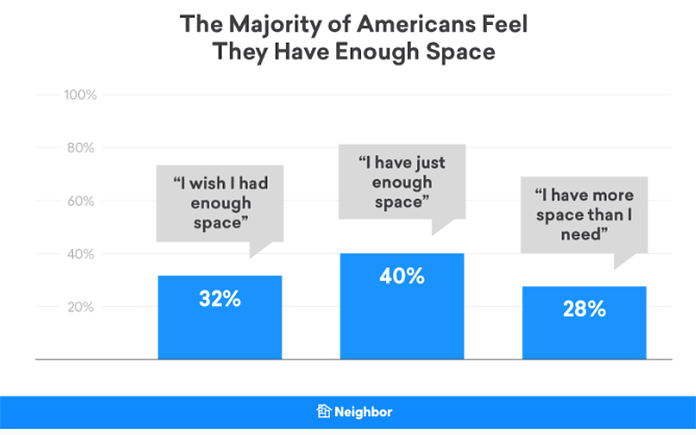
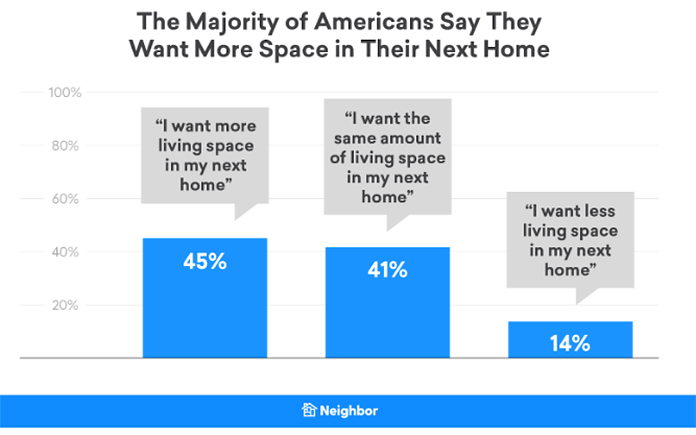
Christina Marfice is a writer for Neighbor, a peer-to-peer marketplace for storage.



